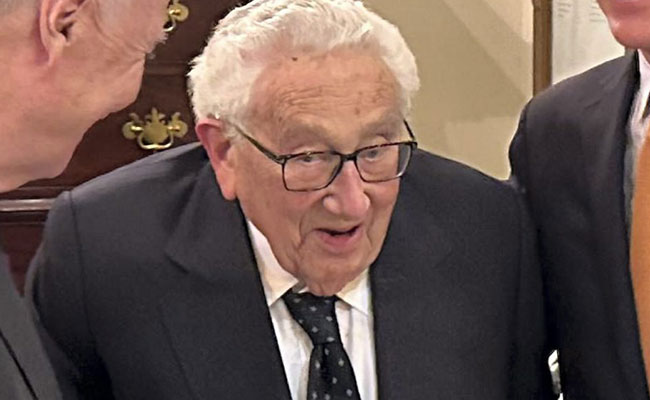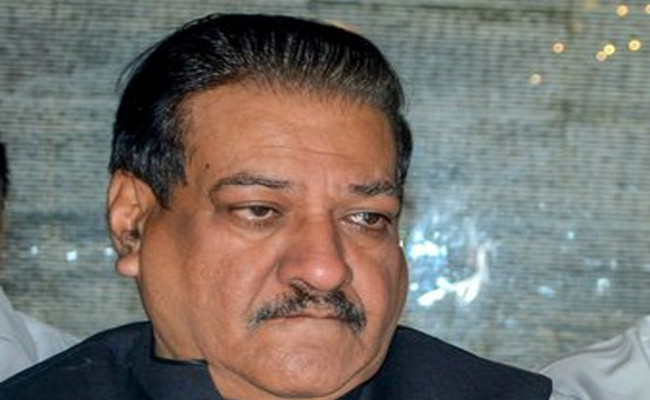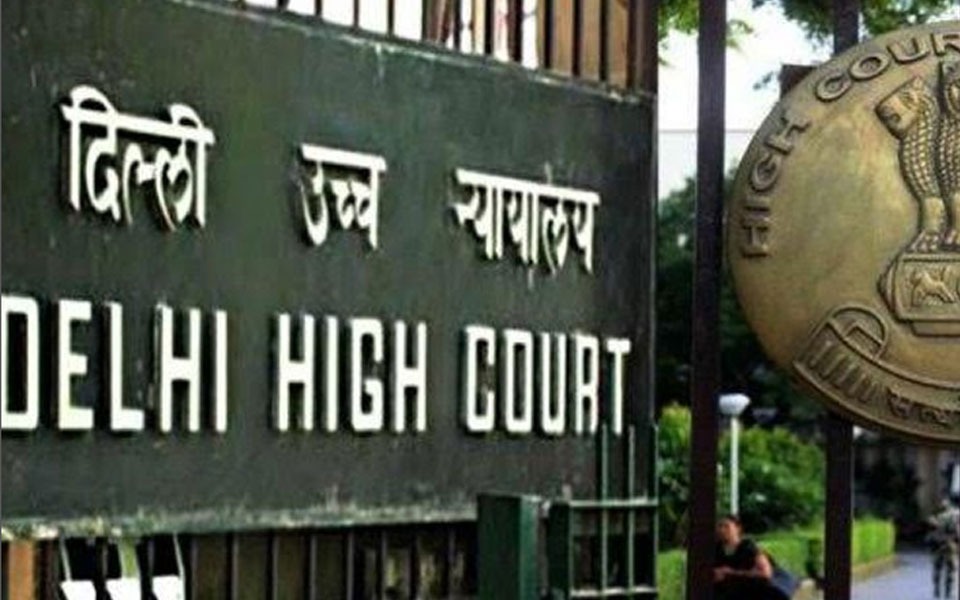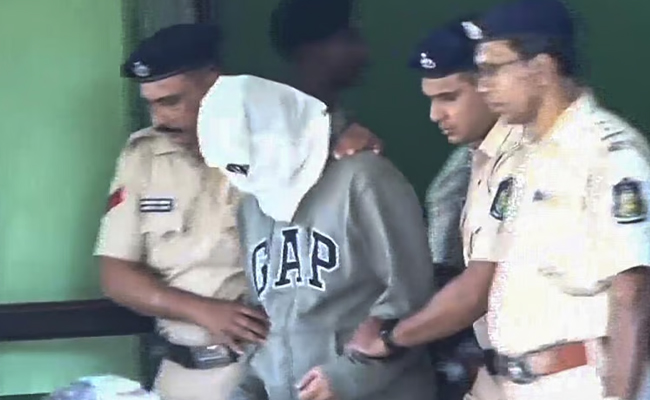Washington (AP): Former Secretary of State Henry Kissinger, the diplomat with the thick glasses and gravelly voice who dominated foreign policy as the United States extricated itself from Vietnam and broke down barriers with China, died Wednesday, his consulting firm said. He was 100.
With his gruff yet commanding presence and behind-the-scenes manipulation of power, Kissinger exerted uncommon influence on global affairs under Presidents Richard Nixon and Gerald Ford, earning both vilification and the Nobel Peace Prize. Decades later, his name still provoked impassioned debate over foreign policy landmarks long past.
Kissinger's power grew during the turmoil of Watergate, when the politically attuned diplomat assumed a role akin to co-president to the weakened Nixon.
"No doubt my vanity was piqued," Kissinger later wrote of his expanding influence. "But the dominant emotion was a premonition of catastrophe."
A Jew who fled Nazi Germany with his family in his teens, Kissinger in his later years cultivated the reputation of respected statesman, giving speeches, offering advice to Republicans and Democrats alike and managing a global consulting business. He turned up in President Donald Trump's White House on multiple occasions. But Nixon-era documents and tapes, as they trickled out over the years, brought revelations many in Kissinger's own words that sometimes cast him in a harsh light.
Never without his detractors, Kissinger after he left government was dogged by critics who argued that he should be called to account for his policies on Southeast Asia and support of repressive regimes in Latin America.
For eight restless years first as national security adviser, later as secretary of state, and for a time in the middle holding both titles Kissinger ranged across the breadth of major foreign policy issues. He conducted the first "shuttle diplomacy" in the quest for Middle East peace. He used secret channels to pursue ties between the United States and China, ending decades of isolation and mutual hostility.
He initiated the Paris negotiations that ultimately provided a face-saving means a "decent interval," he called it to get the United States out of a costly war in Vietnam. Two years later, Saigon fell to the communists.
And he pursued a policy of detente with the Soviet Union that led to arms control agreements and raised the possibility that the tensions of the Cold War and its nuclear threat did not have to last forever.
At age 99, he was still out on tour for his book on leadership. Asked in July 2022 interview with ABC whether he wished he could take back any of his decisions, Kissinger demurred, saying: "I've been thinking about these problems all my life. It's my hobby as well as my occupation. And so the recommendations I made were the best of which I was then capable."
Even then, he had mixed thoughts on Nixon's record, saying "his foreign policy has held up and he was quite effective in domestic policy" while allowing that the disgraced president had "permitted himself to be involved in a number of steps that were inappropriate for a president."
As Kissinger turned 100 in May 2023, his son David wrote in The Washington Post that his father's centenary "might have an air of inevitability for anyone familiar with his force of character and love of historical symbolism. Not only has he outlived most of his peers, eminent detractors and students, but he has also remained indefatigably active throughout his 90s."
Asked during a CBS interview in the leadup to his 100th birthday about those who view his conduct of foreign policy over the years as a kind of "criminality," Kissinger was nothing but dismissive.
"That's a reflection of their ignorance," Kissinger said. "It wasn't conceived that way. It wasn't conducted that way."
Kissinger continued his involvement in global affairs even in his last months. He met Chinese leader Xi Jinping in Beijing in July, as bilateral relations were at a low point. And 50 years after his shuttle diplomacy helped end the 1973 Mideast war, when Israel fended off a surprise attack from Egypt and Syria, Kissinger warned of the risks of that conflict repeating itself after Israel faced a surprise assault by Hamas on Oct. 7.
Tributes for Kissinger from prominent U.S. officials poured in immediately upon word of his death. Former President George W. Bush said the U.S. "lost one of the most dependable and distinctive voices on foreign affairs" and former New York City Mayor Michael Bloomberg said Kissinger was "endlessly generous with the wisdom gained over the course of an extraordinary life."
Kissinger's consulting firm said he died at his home in Connecticut.
Kissinger was a practitioner of realpolitik using diplomacy to achieve practical objectives rather than advance lofty ideals. Supporters said his pragmatic bent served U.S. interests; critics saw a Machiavellian approach that ran counter to democratic ideals.
He was castigated for authorizing telephone wiretaps of reporters and his own National Security Council staff to plug news leaks in Nixon's White House. He was denounced on college campuses for the bombing and allied invasion of Cambodia in April 1970, intended to destroy North Vietnamese supply lines to communist forces in South Vietnam.
That "incursion," as Nixon and Kissinger called it, was blamed by some for contributing to Cambodia's fall into the hands of Khmer Rouge insurgents who later slaughtered some 2 million Cambodians.
Kissinger, for his part, made it his mission to debunk what he referred to in 2007 as a "prevalent myth" that he and Nixon had settled in 1972 for peace terms that had been available in 1969 and thus had needlessly prolonged the Vietnam War at the cost of tens of thousands of American lives.
He insisted that the only way to speed up the withdrawal would have been to agree to Hanoi's demands that the U.S. overthrow the South Vietnamese government and replace it with communist-dominated leadership.
Pudgy and messy, Kissinger incongruously acquired a reputation as a ladies' man in the staid Nixon administration. Kissinger, who had divorced his first wife in 1964, called women "a diversion, a hobby." Jill St. John was a frequent companion. But it turned out his real love interest was Nancy Maginnes, a researcher for Nelson Rockefeller whom he married in 1974.
In a 1972 poll of Playboy Club Bunnies, the man dubbed "Super-K" by Newsweek finished first as "the man I would most like to go out on a date with."
Kissinger's explanation: "Power is the ultimate aphrodisiac."
Yet Kissinger was reviled by many Americans for his conduct of wartime diplomacy. He was still a lightning rod decades later: In 2015, an appearance by the 91-year-old Kissinger before the Senate Armed Services Committee was disrupted by protesters demanding his arrest for war crimes and calling out his actions in Southeast Asia, Chile and beyond.
Heinz Alfred Kissinger was born in the Bavarian city of Fuerth on May 27, 1923, the son of a schoolteacher. His family left Nazi Germany in 1938 and settled in Manhattan, where Heinz changed his name to Henry.
Kissinger had two children, Elizabeth and David, from his first marriage.
Let the Truth be known. If you read VB and like VB, please be a VB Supporter and Help us deliver the Truth to one and all.
Mumbai (PTI): Despite facing criticism, senior Congress leader Prithviraj Chavan on Wednesday stood by his controversial comments that India faced a "total defeat" in aerial fight with Pakistan on the first day of Operation Sindoor on May 7.
The former Union minister refused to apologise for his comments on the Indian military operation against terror hubs in Pakistan and PoK in aftermath of massacre of tourists at Pahalgam in Jammu and Kashmir in April.
Talking to reporters in Pune on Tuesday, Chavan claimed India faced a "total defeat in the aerial fight (with Pakistan) on May 7 which lasted for half-an-hour".
"One may believe this or not. After that the Indian Air Force got grounded and not a single aircraft took flight that day.... be it Gwalior, Bhatinda or Sirsa, there was a possibility of aircraft being shot down, so our complete Air Force was grounded," the former Maharashtra chief minister had said.
Hitting out at Chavan, Maharashtra Deputy Chief Minister Eknath Shinde accused the Congress of speaking the language of Pakistan. He said questioning the military action was akin to demoralising the morale of armed forces.
ALSO READ: New safety wristbands launched for children at Makkah’s Grand Mosque
"The criticism does not stem from the love of the nation, but love for Pakistan," said the chief leader of the Shiv Sena, a key constituent of the BJP-led NDA.
Chavan, however, remained defiant.
"There is no question of apologising. The Constitution has given me the right to ask questions," the Congress veteran asserted.
Chavan also questioned the need of having a 12-lakh strong Army when future wars will be about aerial combats and missiles. "During Operation Sindoor we saw that there was no movement of the Army even for a kilometre," he had said.
BJP Lok Sabha MP and spokesperson Sambit Patra said Chavan's remarks are loaded with sedition.
"He (Chavan) has refused to apologise. The Indian armed forces struck 100 kms inside the Pakistan territory and destroyed 11 air strips (of the Pakistani Air Force). He made remarks that the Indian Army did not even move an inch (during the military operation). This is nothing but a statement full of sedition, a statement of a traitor," Patra said, lashing out at the Congress leader.
The BJP spokesperson maintained the Congress appears to be standing with Chavan and alleged the Opposition party is playing into foreign hands.
Congress leaders Sonia Gandhi and Priyanka Gandhi Vadra should apologise for it, he added.
Union minister Giriraj Singh of the BJP insisted it was not right to devalue the valour of Indian armed forces.
Samajwadi Party MP Virendra Singh suggested that wherever armed forces are concerned, every Indian should be mindful of statements they make and ensure their comments do not demoralise the military.
Operation Sindoor was a result of "mistakes of politicians", he claimed.
TDP MP Krishna Devraylu said after the poll defeat in Bihar, the Congress is rattled and their leaders have been talking absurdly.
"Chavan's remarks are a prime example of this. This kind of disrespect to our armed forces is not necessary. If the Congress is angry with the NDA, it should show it in a different way and not drag armed forces into it," Devraylu opined.
AAP MP Ashok Mittal said such statements should not be made by any senior politician, especially by someone who has been a former chief minister.
The Indian armed forces registered a strong victory and destroyed terror launchpads in Pakistan during Operation Sindoor, Mittal added.





